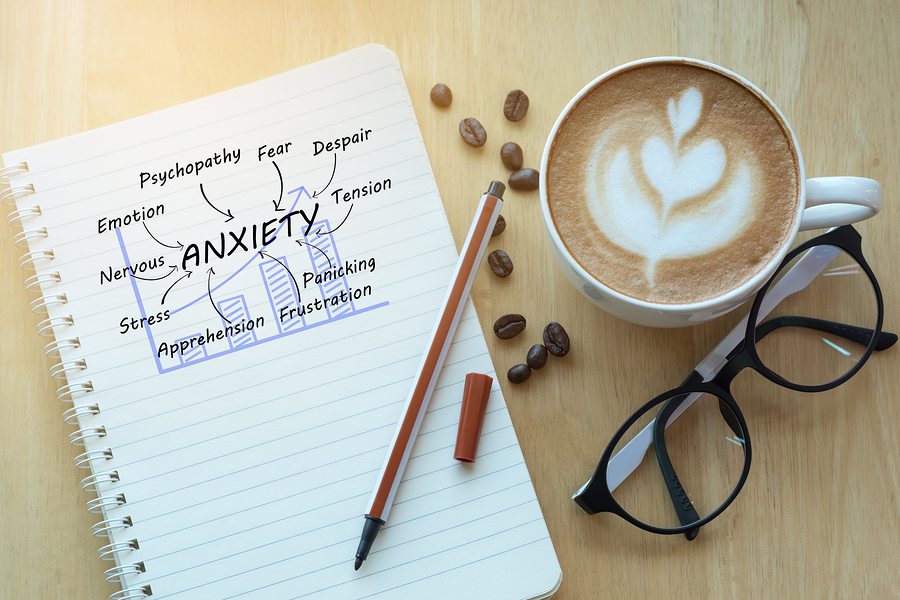Anxiety And How to Live With It
Everyone can feel anxious every now and then but those with generalised anxiety disorder (GAD) find this anxiety is more intense and long-lasting, so much so that it interferes with their day-to-day activities.
This is Anna’s Story:
Anna Vaught tells of how she has lived with GAD with 35 years. A mother of three children, Anna describes how she succeeds in managing her anxiety with being a parent and having a successful career.
Seeing the signs
Anna was always a nervous child. She would worry that something terrible would happen, especially to her teachers at school. She would have palpitations, feelings of panic and sweaty palms.
Anna remembers that often she just wanted to run and hide and would cry all night.
As a teenager, Anna continued to feel overly anxious. She would have panic attacks during her school exams with heart palpitations, feelings of nausea and light-headedness.
Anna did see her GP but only said she’d been sick so she could get a note to send to the exam board.
If you are a parent who is worried about your child there are ways to support them through the pressure of exams.
Anna had no idea her symptoms were treatable. She hid her anxiety as much as she could from family and friends. Anna began to self-harm because she had internalised her feelings and believed that this would help to alleviate her feelings of insurmountable panic.
Sadly while Anna was at university her father died, followed by her mother shortly after she graduated. Anna’s feelings of anxiety increased.
What are the treatments?
In her mid-twenties, following a period of severe depression which ran alongside her feelings of anxiety, Anna finally got the support she needed. Her GP explained that Anna’s desperate feelings and depression related to an anxiety disorder.
Unfortunately, the first treatments offered to Anna did not work for her. These included four different types of anti-depressants which just made her tired and not able to perform well through the day. It was also suggested that Anna undertake Cognitive Behavioural Therapy (CBT), which, although a treatment that attempts to change the way you reason and act, Anna didn’t get on with as she would just dissimilate the therapy and go straight back to being anxious again.
However, when Anna was offered Cognitive Analytic Therapy (CAT) everything changed. CAT looked at the origins of Anna’s behaviour and anxiety patterns, along with using some of the elements of CBT. Anna finally felt this therapy worked for her and could help her cope with her feelings of anxiety.
How To Live with GAD
Although she has learnt how to cope, Anna can still feel overly anxious. She may perhaps misunderstand a look and then dissect its meaning for days afterwards. Past events, which may have been uncomfortable for Anna, mould her present-day thinking and so these feelings have a bearing on how she interacts with her friends as she is continually picking apart conversations.
However, Anna has learned how to cope. She imagines her anxious feelings as a train that she doesn’t try to stop but just moves along with.
This way of coping has really made a difference for Anna. In the past there were things that Anna wanted to achieve but couldn’t because of her panic attacks, however, now with her coping mechanisms in place, Anna feels able to do whatever she wants.
On becoming a parent, Anna realised how important it was to control her anxiety. Being honest and open with her family Anna believes is the best way. It is very important to her that her husband and children understand that not only can you live with a mental health issue but these problems can be managed successfully too.
A few tips from Anna on how to live with GAD
- It is perfectly natural to feel anxious at times but when everyday worries have a negative impact, work out your way of coping
- When you find yourself feeling over anxious in a day-to-day situation always try to think of the most awful outcome, that way it won’t be so bad if the worst does happen.
- Remember that even though you will feel overly anxious occasionally those feelings will diminish, understand that it’s just glitch and you will feel better.
- If things feel bleak today, believe that they are never as bad tomorrow.
- Learning to laugh at the condition helps you to cope with it.
Killing Hapless Ally (Patrician Press) written by Anna Vaught is a fictional novel which explores an individual’s struggle with mental health issues.





















